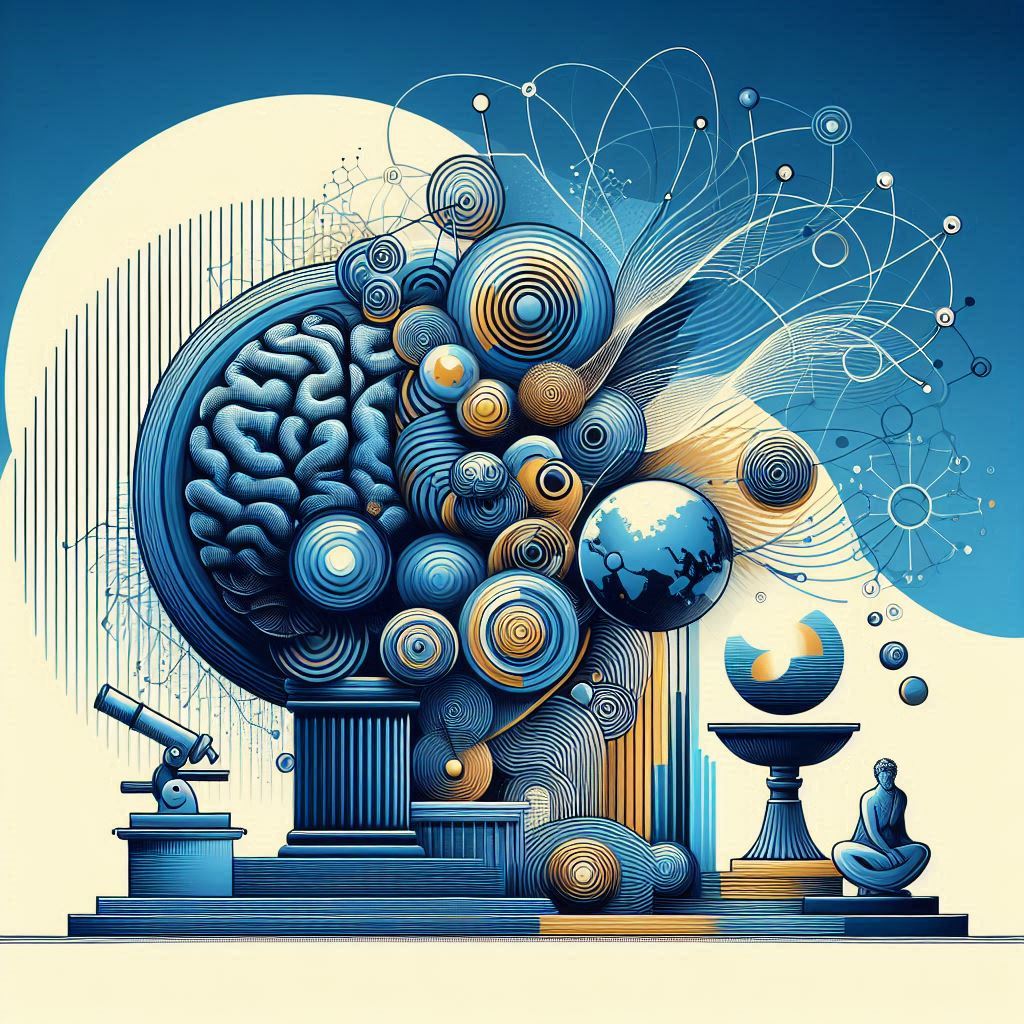Introduction
The philosophy of mind explores the nature of consciousness and its relationship to the physical world. This field addresses fundamental questions about the mind, perception, and the nature of reality. It seeks to understand how mental states, such as beliefs, desires, and sensations, relate to physical processes in the brain and body.
Historical Perspectives
Philosophers like René Descartes and John Locke laid the groundwork for the philosophy of mind. Descartes’ dualism posited a separation between mind and body, arguing that the mind is a non-physical substance distinct from the physical body. This view raises questions about how the mind and body interact and influence each other. Descartes famously stated, “Cogito, ergo sum” (“I think, therefore I am”), emphasizing the certainty of one’s own existence as a thinking being.
Locke’s empiricism emphasized the role of sensory experience in shaping the mind. He argued that the mind at birth is a “tabula rasa” (blank slate) and that all knowledge is derived from experience. Locke’s ideas laid the foundation for later empirical and scientific approaches to understanding the mind.
Modern Theories
Contemporary theories of consciousness include materialism, which views consciousness as a product of physical processes, and functionalism, which focuses on the functions of mental states. Materialism, or physicalism, asserts that everything about the mind can be explained in terms of physical processes in the brain. This view is supported by advances in neuroscience, which have identified correlations between brain activity and conscious experiences.
Functionalism, on the other hand, argues that mental states are defined by their functional roles rather than their physical makeup. According to functionalism, what matters is not the substance of the brain but the way mental states interact and produce behavior. This perspective allows for the possibility that non-biological systems, such as artificial intelligence, could possess consciousness if they perform the same functions as human brains.
The Hard Problem of Consciousness
Philosopher David Chalmers coined the term “hard problem of consciousness” to describe the challenge of explaining how subjective experiences arise from physical processes. While neuroscience can map brain activity and identify neural correlates of consciousness, it remains unclear how these physical processes give rise to the rich, subjective quality of conscious experience, known as “qualia.”
The hard problem contrasts with the “easy problems” of consciousness, which involve explaining cognitive functions and behaviors. For example, understanding how the brain processes visual information or how memory works are considered easy problems because they can be addressed through empirical research. The hard problem, however, delves into the fundamental nature of experience itself, posing questions that may require new philosophical and scientific paradigms.
Philosophical Debates
Several philosophical positions attempt to address the hard problem of consciousness:
- Dualism: As mentioned earlier, dualism posits that the mind and body are distinct substances. This view faces challenges in explaining how non-physical mental states can interact with the physical brain.
- Physicalism: Physicalists argue that consciousness can be fully explained by physical processes. Some physicalists adopt a reductive approach, seeking to explain consciousness in terms of simpler physical phenomena, while others advocate for non-reductive physicalism, which acknowledges the complexity of conscious experience.
- Panpsychism: This view suggests that consciousness is a fundamental feature of the universe, present in all matter to some degree. Panpsychism offers a radical solution to the hard problem by proposing that consciousness is not exclusive to complex organisms but is a basic aspect of reality.
- Emergentism: Emergentists argue that consciousness arises from complex interactions among simpler components. According to this view, consciousness is an emergent property that cannot be fully explained by examining individual neurons or brain regions in isolation.
Neuroscientific Advances
Recent advances in neuroscience have provided new insights into the nature of consciousness. Techniques such as functional magnetic resonance imaging (fMRI) and electroencephalography (EEG) allow researchers to study brain activity in real-time, revealing patterns associated with different conscious states. For example, studies have identified specific brain networks involved in attention, self-awareness, and the integration of sensory information.
Neuroscientific research has also explored altered states of consciousness, such as those induced by meditation, psychedelics, and sleep. These studies suggest that consciousness is not a single, unified phenomenon but a dynamic and multifaceted process that can vary across different states and conditions.
The Future of Consciousness Studies
The study of consciousness is an interdisciplinary endeavor, drawing on philosophy, neuroscience, psychology, and artificial intelligence. Future research may uncover new ways to bridge the gap between subjective experience and objective measurement, shedding light on the nature of consciousness and its role in the universe.
Emerging technologies, such as brain-computer interfaces and advanced neuroimaging, hold promise for deepening our understanding of the mind. Additionally, philosophical inquiry will continue to play a crucial role in addressing the conceptual and ethical implications of these discoveries.
Conclusion
Understanding consciousness is a complex and ongoing endeavor. By integrating philosophical insights with scientific research, we can continue to unravel the mysteries of the mind. The philosophy of mind offers a rich and diverse framework for exploring the nature of consciousness, challenging us to rethink our assumptions and expand our understanding of what it means to be conscious.


Leave a Reply